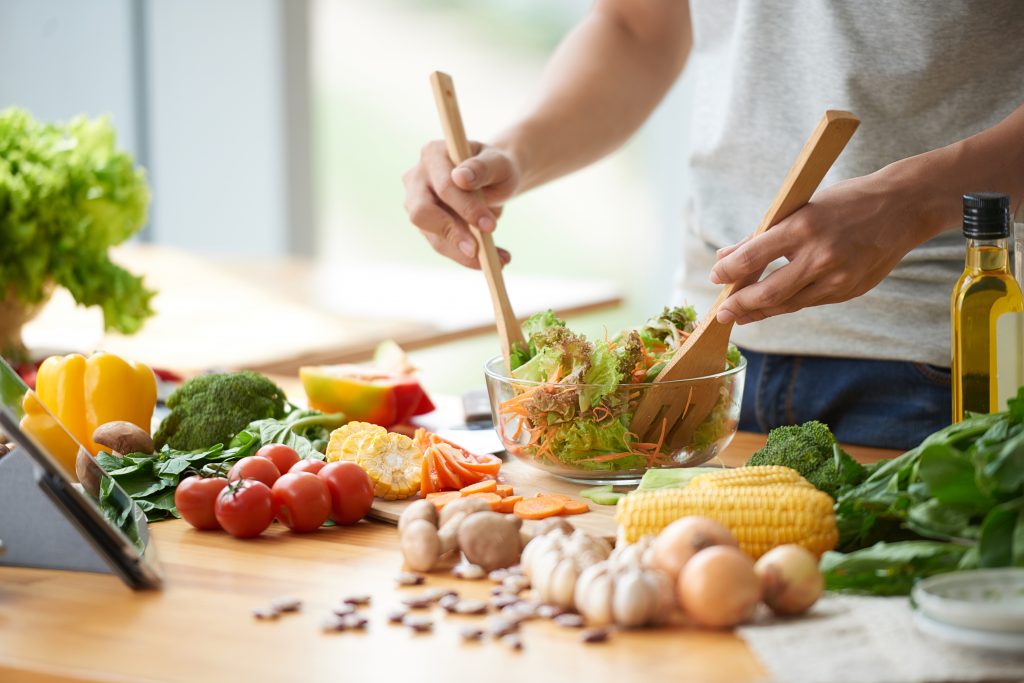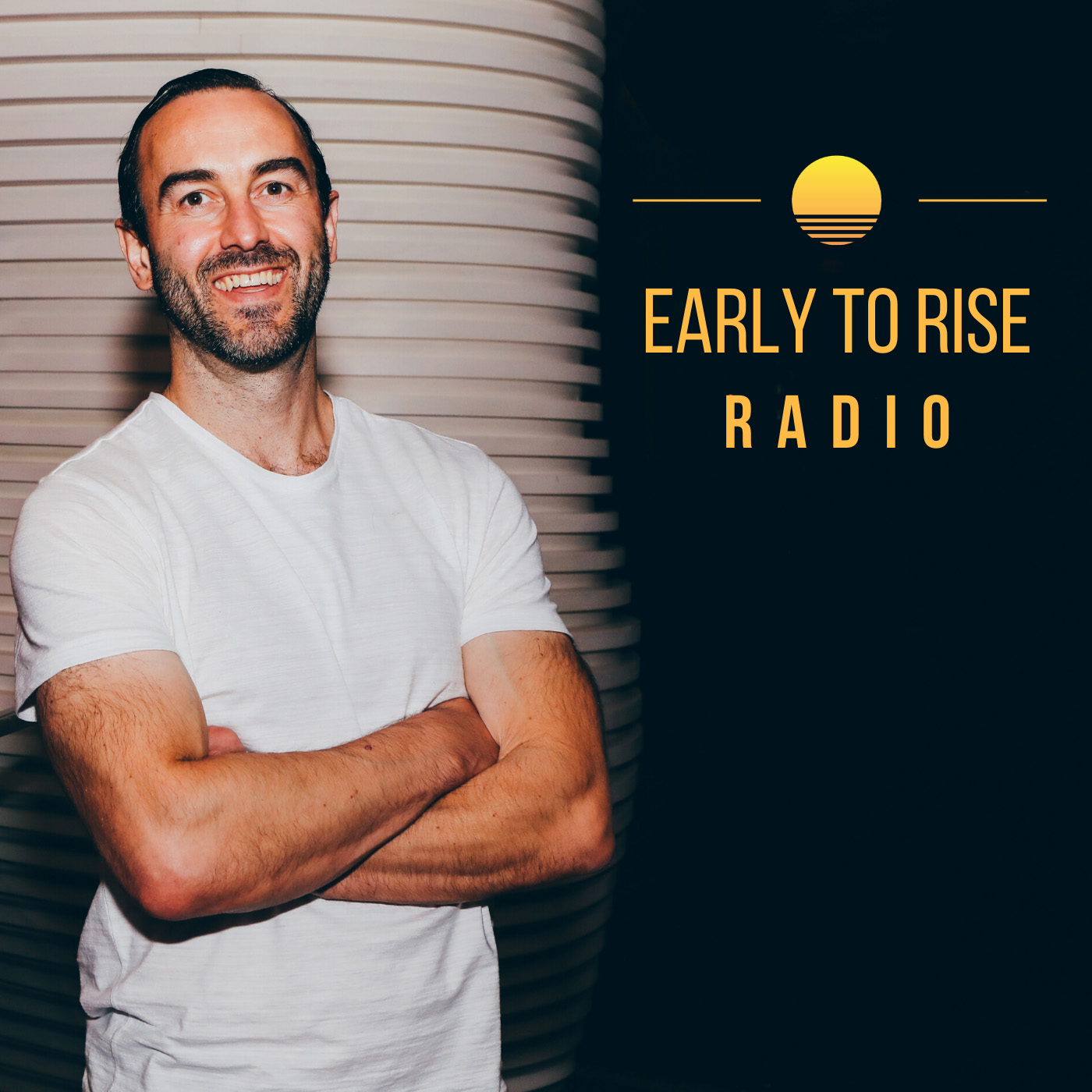020 – #1 Pillar of High Performance

If there were a legal pill, free from side effects, that gave you all-day energy, laser-like focus, and better sleep, and helped you recover faster and sculpt a leaner, sexier body, would you take it?
Podcast: Play in new window | Download
Of course, you would. So would I. But there isn’t.
However, we can get these same results from the #1 Pillar of High Performance. And you can harness their power of this pillar starting right now, even as you listen to me.
The #1 pillar for your physical and mental success is called NUTRITION.
When I was 20 years old I heard one of my mentors say, “Nutrition is as powerful as a drug.” Back then, that was a controversial statement. Not many people gave a second thought to what they put in their bodies.
But today we know the wrong diet decisions can harm your body like the most toxic chemicals known to man, while the right diet decisions can naturally heal your body back from almost any disease.
The answers to so many of our performance problems are literally within arms reach at the supermarket. But we neglect the power of simple changes to our Diet… instead we waste time and energy chasing pills and potions.
It’s time get serious and clear about what this pillar of success can do for you, and how to use them. With the right plan, you can turn food into the rocket fuel need for success in every area of your life, from health to happiness, from writing to relationships, from sex to sales, and from productivity to parenting.
So much of success comes down to energy.
But what is energy?
People use this word to describe focus, alertness, and arousal. If you’re physically or mentally tired, it’s said that you don’t have “energy”.
If you can’t focus, you don’t have energy. If you lack strength or stamina in physical activities, you don’t have energy.
Fortunately, when it comes to the human mind and body, there’s a simple solution for having more energy and becoming high performers. Take care of your diet, be consistent with exercise, and follow a regular sleep routine, and you’ll optimize your performance in every area of life.
What the heck is the right diet?
Let’s walk you through how this pillar of success can be a game-changer for you at home and at work, as well as in the gym and on the beach so that you can build the foundation of high performance in every area of your life.
We all have access to delicious versions of human rocket fuel, and yet we often choose to pollute our bodies with poison.
But, nutrition is a lot simpler than you think. Let’s talk about what nutrition can and can’t do for you…
Good nutrition supports…
- Energy
- Alertness & arousal
- Lean body
- Blood sugar
- Hormones
- Digestion
- Even sex drive
But when you don’t follow good nutrition…
- You’re tired
- You’re cranky
- You even get hangry
- You can be nutrient deprived yet calorically abundant
- Your sex drive can disappear
- Your blood sugar, blood pressure, and blood lipids can reach dangerous levels
- You can suffer from constipation, bloating, and gas
- Your gain weight, age faster, and even get aches and pains from what you eat
Your results and your best program are specific to you.
Diet is individual… more so than exercise and sleep. But the good news is that this is relatively simple to figure out. In 1999 I discovered the power of the food journal. I was a young graduate student, and finally taking diet as seriously as I did exercise.
At the time I was involved in several groundbreaking research studies, including one on Andro, and one on creatine. The subjects in our studies had to record their nutrition… one of the other graduate students entered all of the data into a computer program.
At the end of the study, we’d compare the strength and muscle gains against the food profiles. It was powerful. Different diet portions and macronutrient profiles led to dramatically different results in terms of muscle gained.
But soon I’d discover diet is even more powerful for weight loss and energy levels. I’ve said it before and I’ll say it again… Diet is as powerful as drugs.
So how do you figure out what is right for you?
There’s a powerful, simple, and free tool available to you right now. It requires only pen and paper, or if you want, you can use a free app.
The tool is a food diary.
When you use a food diary you can quickly and easily figure out:
- What foods are good for your body
- What foods lead to adverse reactions
- What calorie level allows you to lose weight, maintain weight, or gain weight
- The amount of fiber that’s right for your digestive system
- The impact of water and hydration on your daily energy
- How caffeine benefits … or burdens… your body
- How often, when, and how much you should eat
Simply put, using a food journal has the power to unlock your relationship with food.
In 2009 Men’s Health magazine reported on a study where subjects lost an extra 5 pounds in a few weeks simply by using a food journal.
It’s the scientific method at work:
- Track your variables.
- Identify the response.
- Eliminate the bad.
- Do more of the good.
So grab a pen and paper, and write down everything you eat. Then go to a free app and input the foods and quantity.
Now you’ll know:
- How many calories you eat
- How much protein, fat, carbohydrate, fiber, and sugar you accumulate
How many calories should you eat?
For a woman looking to lose weight, 1500-1800 calories. Men typically need a few hundred extra calories than women. These are general estimates, and can even change based on the source of your calories.
At breakfast: choose fruit and nuts (or plain yogurt) instead of a muffin and yogurt with added sugar. One of my favorite breakfasts is 3 scrambled eggs, a side of steamed spinach (with a little olive oil), and a bowl of pineapple.
When it comes to energy levels, avoiding added sugar (like the sugar added to yogurt, processed foods, cereals, etc.) is one of the best decisions to make.
Likewise, never drink your calories (unless it’s a rare serving of alcohol). Juices are just as bad as sodas, filled with sugar, lacking fiber, and a train wreck for your blood sugar – and energy – levels.
Quality and Quantity of food are important.
Eating junk food is a bad idea. You know that. I know that.
It’s called junk food for a reason, and you shouldn’t keep it in the house. If it’s there for the kids, just remember, doing so enables your kids to get addicted to the same junk and develop the same bad relationship with junk food that you might have.
Think about this the next time you grab those potato chips or candy bars.
As I always say and have found to be true, “if it’s in your house, you’re going to eat it.” That goes for the good and the bad.
Meal frequency.
Brad Pilon, first mentioned the idea of fasting to me in 2006. I thought he was cuckoo. I actually wondered if I would have to stop associating with him. But since then, weekly fasting – or daily 16-hour breaks from eating – have become a very popular eating approach.
What meal frequency is right for you?
The one that fits your schedule and energy levels best. Is it fasting? Is it mini meals? Is it the classic 3-squares? You’ll only know if you try.
It all comes back to the food journaling. You’ll learn so much about yourself from your food triggers to ways that you can overcome bad dietary decisions. Through this education process, you’ll figure out what to eat for optimal results
So what’s my daily diet?
I’ve tried many approaches, and have settled on a 3 meal per day approach. I also have an antioxidant + greens powder shake first thing in the morning, after petting my dog, Bally.
This drink contains:
- Either Athletic Greens, Organify, or BioTrust greens.
- I add a few grams of glutamine, an amino acid with gut healing properties
- 1 gram of vitamin C.
I have breakfast around 7 am. After more work and a workout, I have lunch at noon. After more work, usually recording podcasts and doing videos, and then walking the dog again, I have dinner at 5 pm.
I aim for a 12-hour break between dinner and breakfast. I finish eating 2-3 hours before bed. I eat vegetarian during the day and have a moderate serving of meat at night.
I eat a LOT of fruits and vegetables (more in a day than most people do in a week), and I eat a scary amount of walnuts.
At lunch, I have a giant salad (spinach, tomatoes, olives, walnuts, olive oil, and either grapes or watermelon), and some carrots or apple slices with almond butter.
At dinner, I have fish, steak, chicken, or a pork chop, along with potatoes and lots of vegetables. Hey, I am a farm boy after all.
For dessert, I have a piece of fruit… preferably a bowl of pineapple, an apple, or bowl of grapes.
Diet is key. Diet is king.
Nearly 10 years ago I made a Youtube video with my friend, Brad Pilon. It was called Diet vs. Exercise. We actually made 4 videos, but the one that is most popular is the one with me sprinting on a treadmill and him eating a slice of pizza and soda.
In 3 minutes he eats 1200 calories of pizza and soda. In 3 minutes of sprinting, I burned just over 40 calories.
Diet beats exercise every time. You can’t out-train a bad diet. You can’t go to the gym the day after Thanksgiving and burn off a 4,000 calorie dinner.
This “cardio confessional” mindset doesn’t work and doesn’t serve you.
You don’t need to workout for hours if you eat right. Too much exercise actually hurts you.
I’d love to hear your thoughts about today’s show. Any disagreements with my conclusions? Anything I left out? Feel like calling me names because I took away your wine? I don’t mind. Let it rip. Let me know what you think. But more importantly, let me know how it helped.
Please send your feedback on today’s show to Support@earlytorise.com or to me via social media on Instagram or Twitter.

